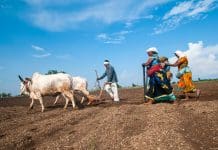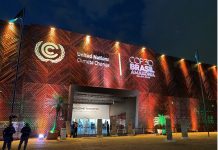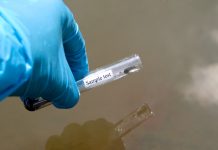In this special report, SSEC (Swedish Surplus Energy Collaboration) focus on their exciting and successful work concerning the production of both healthy food and environments for all people in Sweden
SSEC (Swedish Surplus Energy Collaboration) is a research and development programme at the Swedish University of Agricultural Sciences, that began on 17th December 2012. The original intention of SSEC was to take advantage of surplus heat from the Swedish industry to produce both healthy food and environments for all people.
Healthy food and environments
However, this has been developed to apply primarily to all other residual flows in today’s modern society, from surplus heat to surplus of carbon dioxide, an excess of food waste and organic matter. Also, infrastructure, such as leftover industrial complexes, airports and even freshwater revenues all play an important part in SSEC’s valuable work.
Today, the programme works with two sub-programmes that integrate on several levels, including both urban food and urban health. The programme was spread over a few sites across Sweden, but today our work encompasses 10 places in the country from Härnösand in the north to Malmö, in the south. Six of these sites focus on developing industrial food clusters, in detailed-planned areas, ranging from 50 to 130 hectares.
These industrial clusters develop something that the world has not witnessed before, namely completely circular, symbiotic and scalable food production, primarily fish and vegetables in urban environments. Certainly, we are in the very early stages of this exciting development, but substantial investments have already made in this respect. At least one of these sites has benefitted from investment in the multi-million-dollar bracket. SSEC is, therefore, playing a part in truly building a new Swedish food industry based on Swedish primary production.
Previously, we thought that Swedish primary food production could not compete in the international market, but this proved to be wrong in several ways. One fitting example of this concerns new advanced technology and intensive production methods as well as systems, with which we can create competitiveness far into the future.
The overall objective of the programme is that at least 3 full-scale, innovative fish or vegetable production facilities are launched during the 2016 to 2018 business cycle. We have no doubt that this goal will be achieved during 2018.
The long-term strategic goals of SSEC
The long-term strategic goals of SSEC can be summarised as follows:
Urban food, developing a viable industry
SSEC enables a new Swedish, intensive, circular and symbiotic primary production of fish and vegetables in both urban and industrial environments, under the concept of “urban food”.
Urban health, creating healthy living environments
SSEC enables new, healthy living environments for people in urban environments, under the term “urban health”.
An example of success
In Härnösand, which is probably Europe’s only and true aquaponic production of tomatoes and fish, has been established in both a brand-new facility and company. The company is called Peckas Naturodlingar (Natural Farms), more details of which can be found at http://www.peckas.se.
Concluding remarks
At the time of writing, Pecka Nygård himself is 85 years old. For over 20 years, Pecka has developed his unique form of technology. During the last 4 years, SSEC has been heavily involved in helping to realise this unique company, as have many others, not least the 2 entrepreneurs Hugo Wikström and Daniel Brännström. Of course, Pecka and his technology are the main reasons why the company exists today. So, congratulations must go to Pecka Nygård for his undoubted success.
Below is a picture of the premises at an industrial site in Härnösand, where heat is supplied from a local district heating company. 750 people visited the site the 30th November, when Peckas Naturodlingar was opened. It looks like a traditional greenhouse but consists of a combined production of fish and tomatoes, an industrial symbiosis.

In closing, I would like to underline that SSEC is building a new Swedish environmentally, economically and socially sustainable food industry in about 10 different cities around Sweden.








